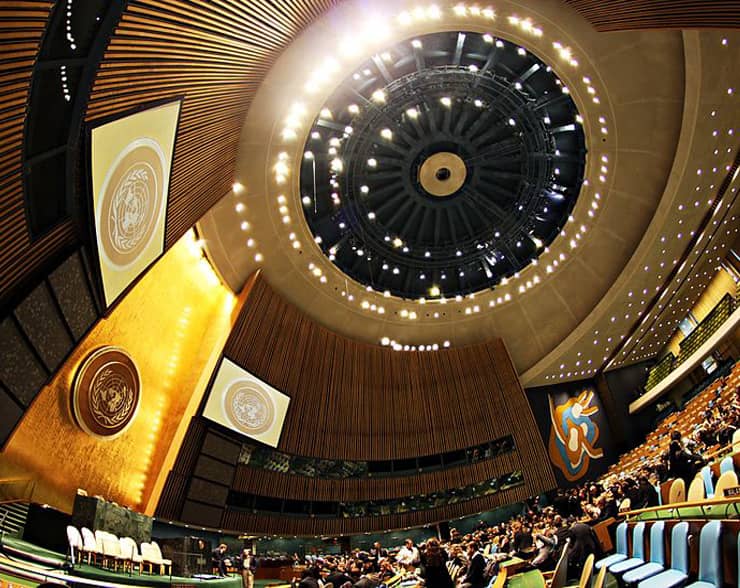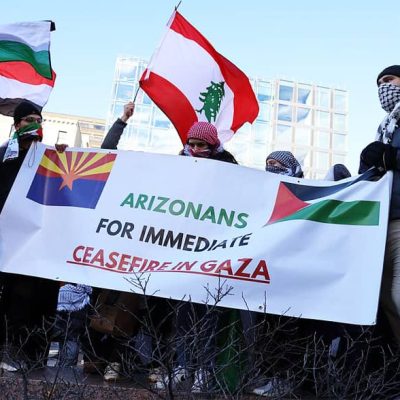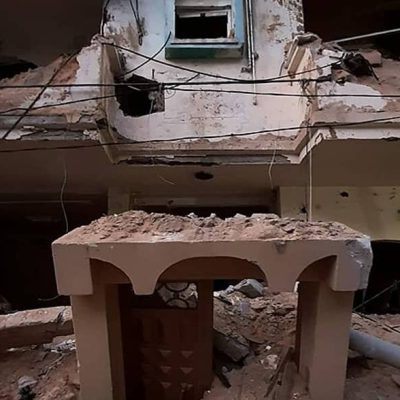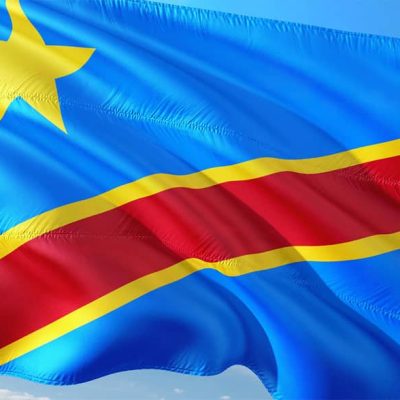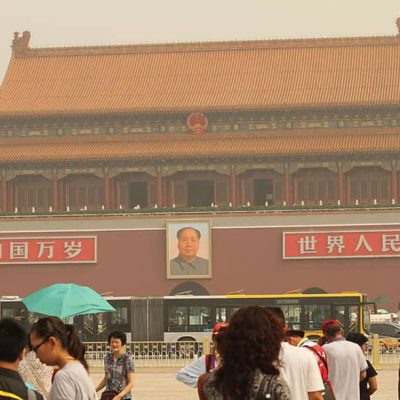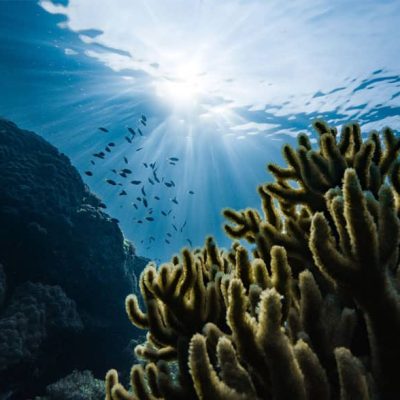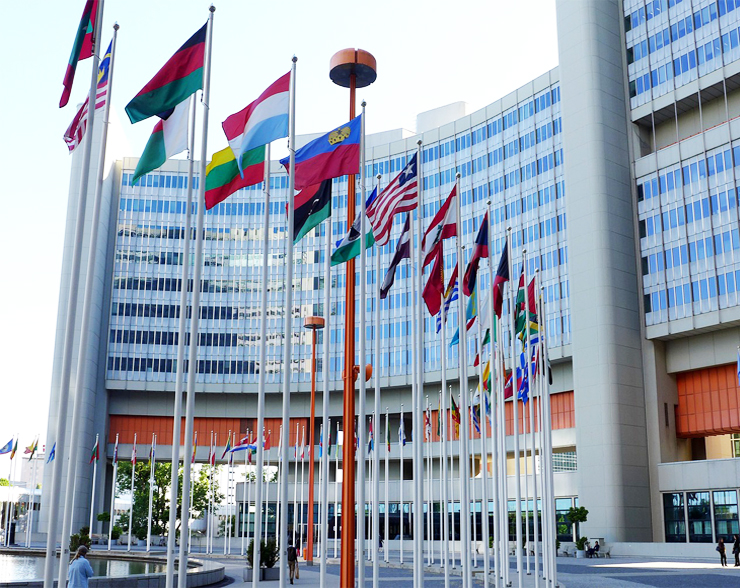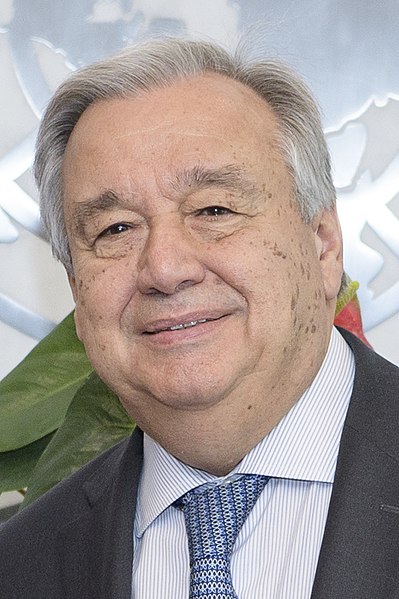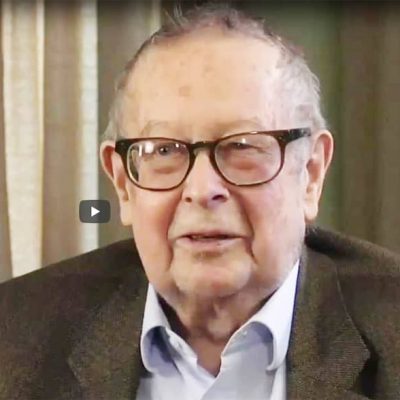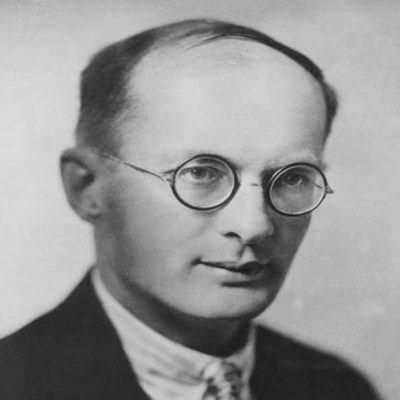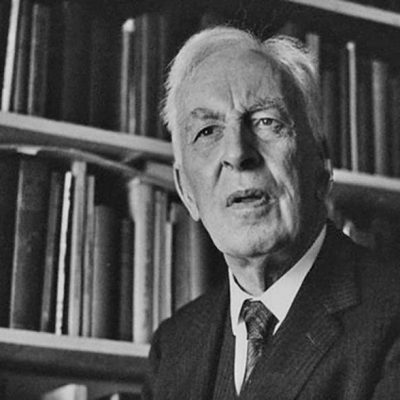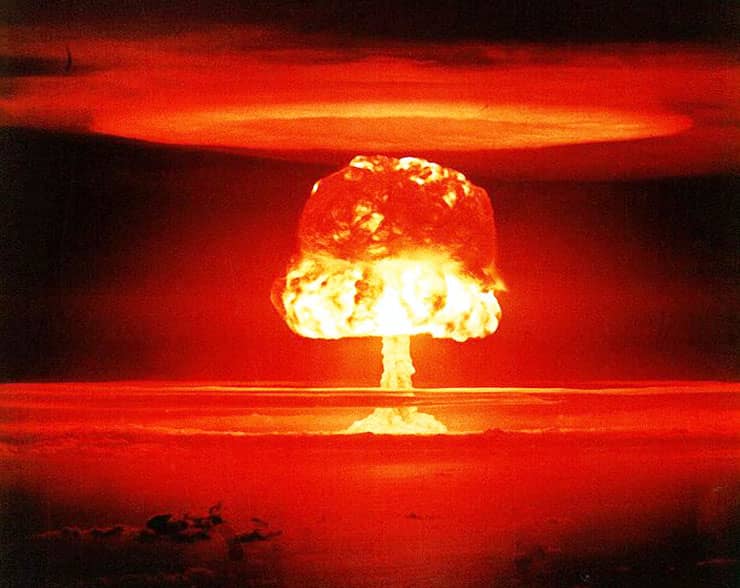 Appeals
Appeals
The NPT and Broader Human Security.
Featured Image: Castle Romeo nuclear test (yield 11 Mt) on Bikini Atoll. It was the first nuclear test conducted on a barge. The barge was located in the Castle Bravo crater. By United States Department of Energy, Public domain, via Wikimedia Commons.
“Nuclear weapons are unique in their destructive power, in the unspeakable human suffering they cause, in the impossibility of controlling their effects in space and time, in the risks of escalation they create, and in the threat they pose to the environment, to future generations, and indeed to the survival of humanity.”
– Jakob Kellenberger, then President of the International Committee of the Red Cross.
The Conference of the Parties to the Treaty on the Non-Proliferation of Nuclear Weapons; (known as the NPT Review to its friends); began on 1 August 2022 at the United Nations in New York. The Secretary- General of the United Nations Antonio Guterres opened the Review by stressing that :
“From the Middle East and the Korean Peninsula. To Russia’s invasion of Ukraine. The clouds that parted following the end of the Cold War are gathering once more.”

Jakob Kellenberger (born 1944), President of the International Committee of the Red Cross (ICRC) since 2000 at Dies academicus 2003 of the University of Fribourg. By Charly Rappo, Attribution, via Wikimedia Commons.
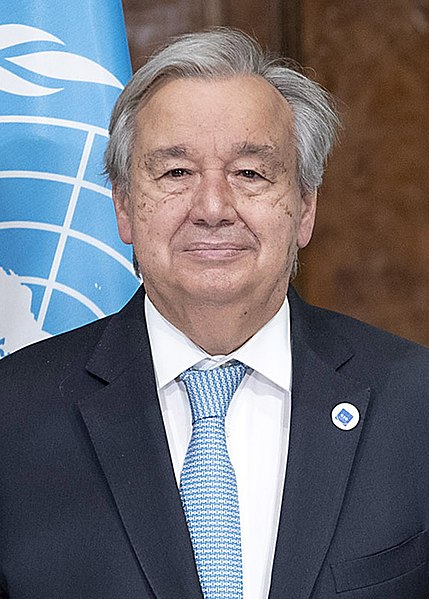
Antonio Guterres By Quirinale.it, Attribution, via Wikimedia Commons.
As I chaired the representatives of the non-governmental organizations (NGO) at the 1975 and the 1980 Reviews, then held in Geneva, I have a feeling of repeating myself, especially as I participated in the 1985 and 1990 Reviews, after which the Reviews moved to New York.
As the Reviews were not U.N. meetings but were held in U.N. buildings, we were able to negotiate a greater role for NGOs at the review conferences than at the U.N. disarmament meetings. Yes, there was a time when the U.N. had a Conference on Disarmament which held regular meetings. In addition, there were three U.N. General Assembly Special Sessions of Disarmament, 1978, 1982, 1988. Disarmament has largely disappeared from the U.N. Agenda, and NGOs are forced to hand out arms control proposals to government U.N. missions, one step away from distributing pornography.
Image by Basil D Soufi, CC BY-SA 3.0 <https://creativecommons.org/licenses/by-sa/3.0>, via Wikimedia Commons.
U.N. General Assembly: Can It Provide the Needed Global Leadership?
Military Spending Remains Constant.
The month-long NPT Review aims at having a final resolution highlighting the discussions. This final resolution must be agreed upon by consensus making bold proposals difficult. These proposals might be agreed upon if there were majority-minority voting but impossible by consensus. Another major difficulty is that there are crucial States outside the NPT framework: India, Pakistan, Israel, North Korea.
The world’s nuclear arms race arose as a classic case of the security dynamic – a situation in which one State tries to make itself more secure by building weapons and military forces which it says are defensive. NGOs have constantly stressed that money spent on the nuclear weapons industry would be better spent on public health, climate stabilization and ecologically-sound development. However, military spending remains constant. NGOs have also stressed during the Reviews the need for developing confidence-building measures. But confidence remains in short supply.
The debates and the results of the NPT Review merit being watched closely.
Ending the nuclear weapons era will require dedication, sustained effort and increased cooperation among NGOs. NGO action and cooperation led to the treaties on chemical weapons, land mines and cluster weapons. Developing the framework for a broadly defined human security is the next major step. The debates and the results of the NPT Review merit being watched closely.
René Wadlow, President, Association of World Citizens.

President, Association of World Citizens (AWC).
Estudied International relations in The University of Chicago.
Estudied Special Program in European Civilization en Princeton University
Here are other publications that may be of interest to you.
Burma’s Crumbling Junta
February first marked the anniversary of the military coup which overthrew the government of Aung San Suu Kyi in 2021. She was in practice the leader of the government but…
Preventing the Expansion of the Gaza Conflict: Are Peace Brigades a Possibility?
Antony Blinken, the U.S. Secretary of State, has been again in the Middle East working to prevent the violence of the Gaza Strip of spreading to much of the area. …
World Citizens Call for an Inmediate End to Hostilities between Israel and Hamas, and for a Genuine Peacebuilding Effort in the Middle East.
Featured image: The impact of the Israeli bombing on a civilian building in Gaza (2021). By Osama Eid, CC BY-SA 3.0 https://creativecommons.org/licenses/by-sa/3.0, via Wikimedia Commons. The AWC, a Nongovernmental Organization…
World Humanitarian Day: A Need for Common Actions.
Featured Image: Photo by Wylly Suhendra on Unsplash. The United Nations General Assembly has designated 19 August as “World Humanitarian Day” to pay tribute to aid workers in humanitarian service…
Peace Planners: Awake!.
Featured Image: Photo by Eddie Kopp, Unsplash. The recent NATO Summit in Vilnius is an indication that the war planning community is busy at work in the spirit of Von…
Track Two Efforts Needed to Reduce China-India Frontier Tensions.
Featured Image: Arunachal Pradesh – India. Photo by Unexplored Northeast, Unsplash. There has been a constant buildup of military forces by the governments of both India and China along their common frontiers. …
Democratic Republic of Congo: Sky Getting Darker.
Photo by jorono, Pixabay. The armed conflict in the eastern area of the Democratic Republic of Congo (RDC) on the frontier with Rwanda seems to be growing worse and is…
World Refugee Day.
June 20 is the United Nations (UN)-designated World Refugee Day; marking the signing in 1951 of the Convention on Refugees. The condition of refugees and migrants has become a “hot”…
4 June: Memories of Tiananmen Square.
4 June makes the security forces in China somewhat uneasy, especially in Hong Kong where, in the past, there were large memorial meetings tp remind people of 4 June 1989…
International Day of the Oceans.
Featured Image: Photo by Marek Okon, Unsplash. Progress on Asian Maritime Delimitations Needed. 8 June has been designated by the United Nations General Assembly as the International Day of the Oceans to…
